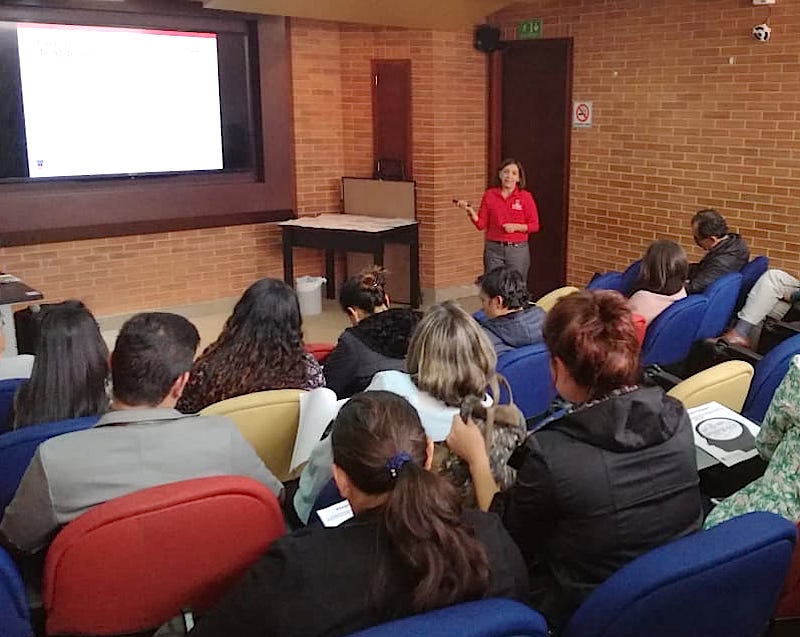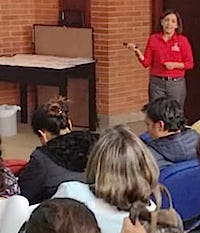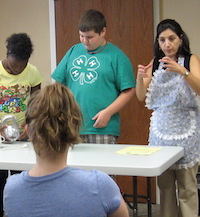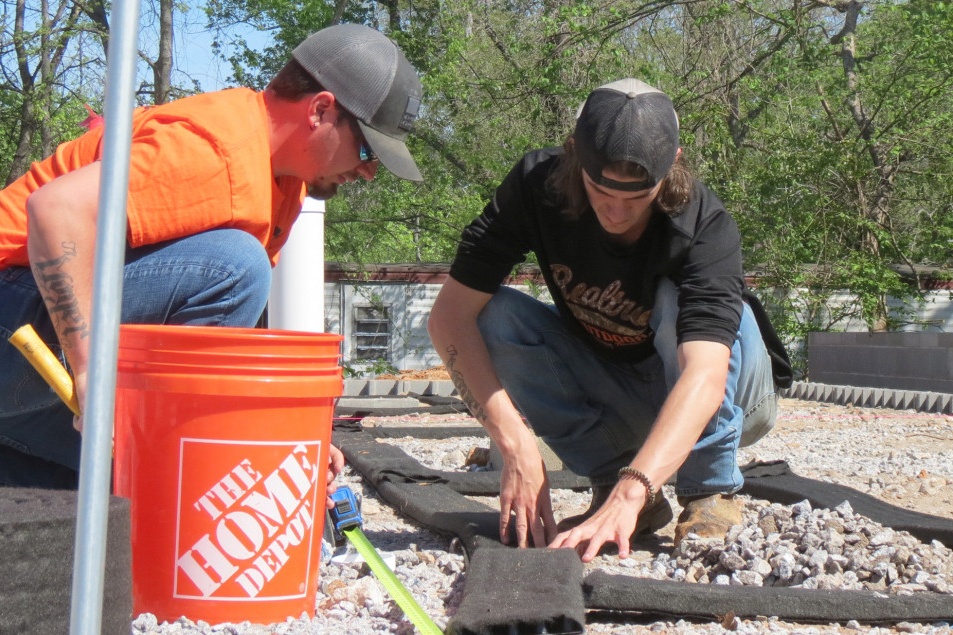Family and Consumer Sciences (FACS) Agent Ines Beltran, of University of Georgia Cooperative Extension in Gwinnett County, recently combined two of her favorite things — teaching people how to improve their health and visiting her home country of Colombia.
As a FACS agent, Beltran teaches people how to become, and stay, healthier. Last January, she was awarded first place in the UGA Extension Winter Conference poster presentation competition for her work to increase the number of Gwinnett County women who get screened for cancer and change their behavior to help prevent cancer. The project was a collaboration with FACS agents from several counties across Georgia.
Shortly thereafter, Beltran’s sister Adriana Beltran, a researcher at the University Corporation God’s Minute (UCGM) in Bogotá, Colombia, met with her colleagues to discuss the curriculum of the university’s preventive medicine programs. The university’s office of virtual and remote programs was planning a conference and needed experts to present.
“We were planning the ‘cycle of conferences’ in which well-known panelists of national and international importance participate with different topics of interest for our students,” said Margarita Palma, director of the university’s Occupational Health Administration program. “We needed someone to present on the issue of nutrition and aging in a healthy way, so when we received Ines’ vitae, we proceeded to contact her.”
Before accepting the invitation, Beltran got approval from her district head, Sheldon Hammond, who wholeheartedly supported the venture.
“Ines works in brain health, and by making an international presentation, not only is she raising awareness, she's also bringing scientific, academic and outreach-minded individuals to the table to effect real change,” said Kisha Faulk, UGA Extension FACS program coordinator for the Northwest District. “Many of us in Family and Consumer Sciences often teach about health and well-being, but we’re usually focusing in on the body and not the mind. As professionals, we know that brain health and the effects of aging on the brain, such as Alzheimer’s disease and dementia, can significantly affect the whole family.”
Beltran then used prize money from her award-winning poster to help pay for her plane ticket to Colombia. She spent the week of June 15 teaching UGA Extension’s Healthy Brain program, which she developed, to more than 220 Colombian occupational health and psychology students and staff in UCGM’s distance learning division.
The number of students initially overwhelmed Beltran, who is accustomed to teaching Gwinnett County residents in small groups. But she soon realized that although there were more students, they were just as eager to learn as her clients back home in the U.S., and these students would soon graduate, become professionals and apply the information she taught them in their own careers.
Beltran taught the Healthy Brain program, which includes a recipe preparation demonstration and tasting session designed to encourage participants to add more fish to their diets. During the class, participants use a risk calculator to assess their lifestyle and future potential for keeping their brain healthy. Beltran explains the differences between dementia and Alzheimer’s and helps the students determine their own risk factors through the risk calculator handout.
“Each student is given a drawing of the brain divided in nine different areas. Each area identifies the risk factors for dementia,” Beltran said. “Participants color in the areas for which they respond 'YES' to the associated risk factors.”
If most of the areas are colored in, the participant sees that they may be at increased risk for Alzheimer's disease and poor brain health as they age, she said.
“This interactive activity includes an explanation of the life behaviors that may lower their risk for dementia,” she said.
At the end of the class, data is collected from each participant using a specific evaluation tool designed to determine their knowledge before and after the lesson.
“They loved the program, which is very interactive,” said Beltran who presented the information in Spanish. “I found the handouts in Spanish through the U.S. Department of Agriculture, and we saw great results through the students’ evaluations. I also created a Spanish version of the recipe handout to use during the program. They received all the information, and they learned something, too.”
The Colombian university’s distance education program would like Beltran to teach more programs virtually from Georgia.
“It is valuable to (UCGM) to raise its mobility indicators of international experts that allow us to carry out research projects related to the area of nutrition and aging healthy,” Palma said. “Our mode of study (distance and virtual), allows us to carry out activities with teachers from other countries without them moving physically to our institution.”
Although Beltran would love to return to Colombia and see her elderly father, presenting the classes virtually via the Internet is a much more efficient method, and she won’t have to tackle the “awful” traffic in Colombia.
(Beltran received two first places poster awards at the State FACS conference in August. On Sept. 2, she received the Epsilon Sigma Phi Alpha Beta Chapter’s International Service Award for her work in Colombia.)









